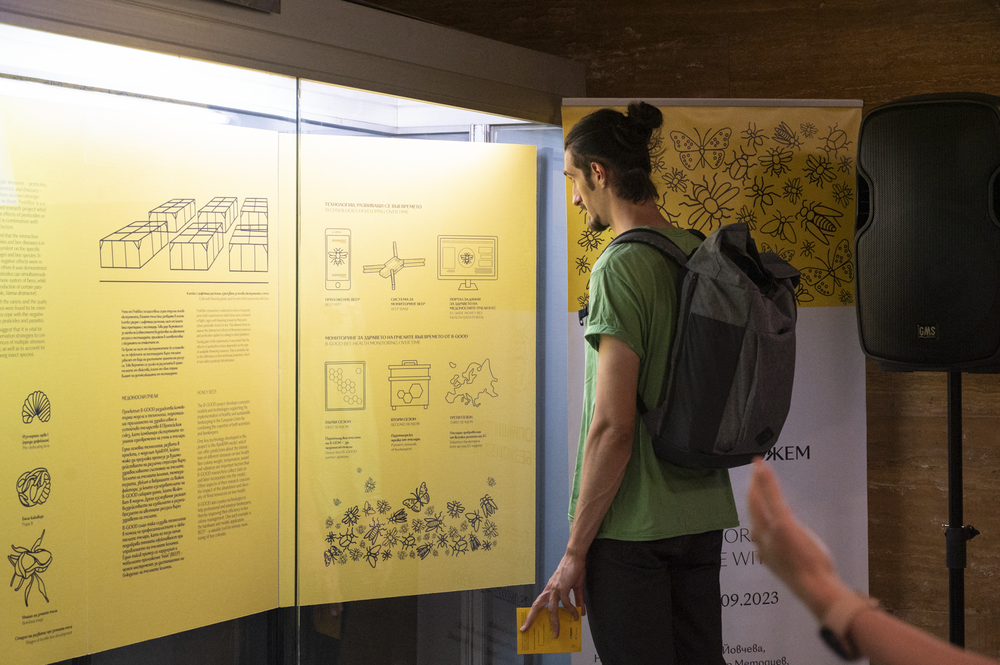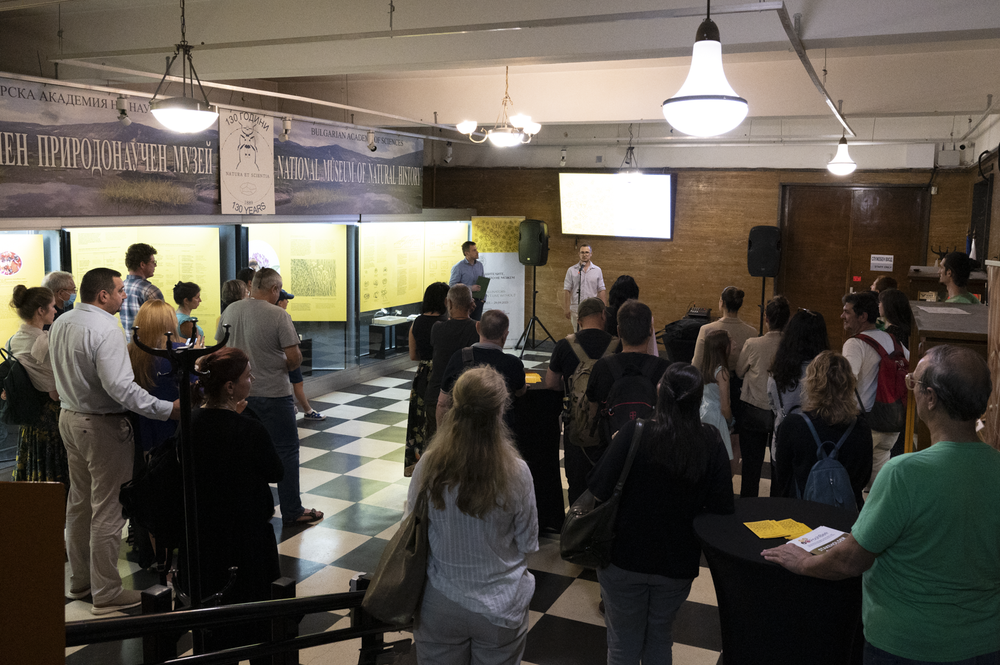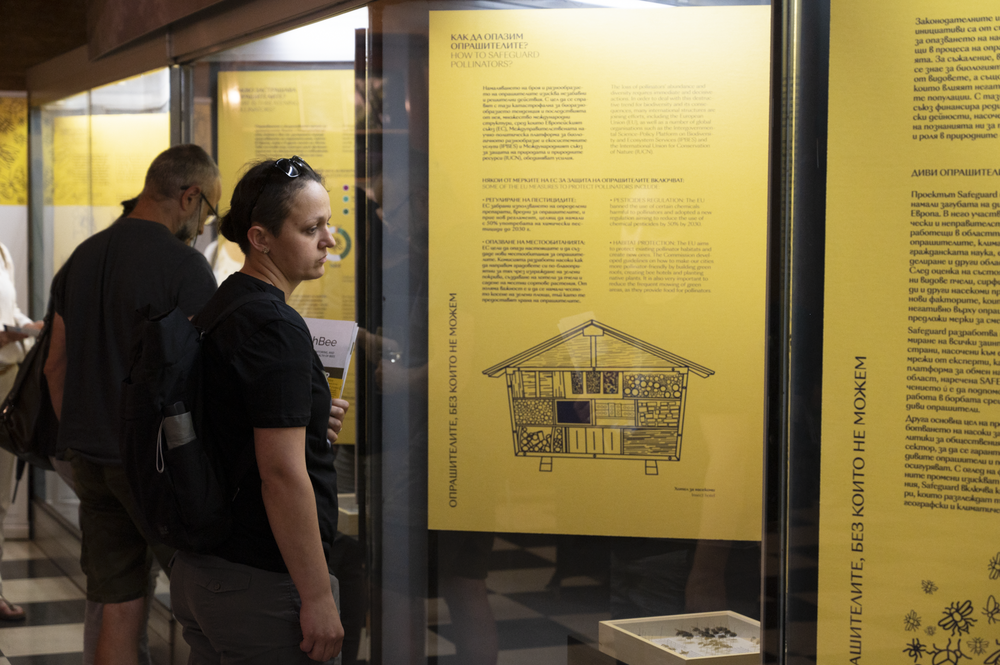pan-european assessment, monitoring, and mitigation of stressors on the health of bees
A window into pollinator conservation: PoshBee supports a new exhibition in Sofia
PoshBee joined forces with B-GOOD, Safeguard and the National Museum of Natural History at the Bulgarian Academy of Sciences (NMNHS) to organise the exhibition ‘The pollinators we can't live without’. It delves into four key topics: (i) What do we know about pollinators; (ii) What is threatening them; (iii) How can we protect them; and (iv) How is science contributing to their conservation.

A visitor reading the information panel presenting
PoshBee's semi-field experiments.
Photo: Boriana Pandova, http://www.borianapandova.com/
By combining the scientific insights of the three projects, each with its unique focus, the exhibition provides a panoramic overview of the topic. It starts with Safeguard which examines wild pollinators and develops management guidelines and policies. It then narrows down the scope with PoshBee’s main results on the effects of pesticides on bees alone and in combination with other negative factors. Lastly, it ends with B-GOOD which develops computer models and technologies supporting specifically honey bees.
Prof. Pavel Stoev, the director of NMNHS, expressed his hope for the exhibition and underscored its significance:
"By combining the expertise of B-GOOD, PoshBee, Safeguard, and the NMNHS, we have created an exhibition that not only showcases the fascinating world of pollinators but also emphasises the urgent need for their protection. It is our hope that this exhibition will inspire visitors to take action and contribute to the conservation of these essential species."

Teodor Metodiev introducing B-GOOD, PoshBee and Safeguard during the opening ceremony. Photo: Boriana Pandova, http://www.borianapandova.com/
Adding further depth to the ceremony, Teodor Metodiev from Pensoft Publishers – science communication expert involved in all three projects – presented B-GOOD, PoshBee and Safeguard. He discussed their main findings with the participants, among which were official representatives of relevant Bulgarian institutions, such as the Ministry of Environment and Water and the Ministry of Agriculture. Teodor also highlighted the collaborative nature of PoshBee which joined academics, beekeepers, farmers, small businesses, agrochemical industries, and charities. This broad area of partners allowed the project to obtain a truly holistic understanding of how chemicals affect health in honey bees, bumble bees, and solitary bees, and reveal how stressors interact to threaten bee health.
At the heart of the opening ceremony, visitors also had the chance to hear directly from the renowned Prof. Ekaterina Kozuharova. With her invaluable experience of monitoring pollinator populations in Bulgaria over the past three decades, Prof. Kozuharova emphasised the alarming rate of their decline.

A visitor holding PoshBee's Stakeholder summaries booklet. Photo: Boriana Pandova, http://www.borianapandova.com/
All visitors were invited to learn about how to contribute to pollinator conservation – from simple acts like refraining from mowing lawns on Sundays to adopting pollinator-friendly practices such as establishing flower strips and hedgerows alongside major agricultural crops. In addition, supporting materials were available to visitors in the form of PoshBee’s Legacy brochure and Stakeholder summaries booklet, as well as Safeguard’s policy brief and B-GOOD’s brochure.
‘The pollinators we can't live without’ exhibition will stay open until the end of September, serving as a significant step toward raising awareness and promoting action to safeguard pollinators in Bulgaria.